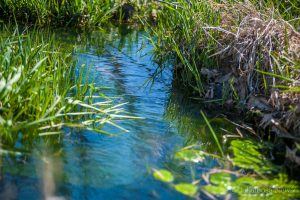Iowa Water Quality Bills Searching For Traction
Mahaska County, Iowa – Water quality has been a hot topic in Iowa for the past several months, especially after Des Moines Water Works filed a lawsuit against three drainage districts in northern Des Moines, Iowa.
Water Works contended that those areas were sending high levels of nitrates down the Raccoon River, which eventually flows into the Des Moines River. Des Moines gets its drinking water from the Des Moines River.
Governor Branstad and the Iowa Ag Secretary had supported legislation last year that would help clean up Iowa’s water. A bill on making that happen failed to make it in the Iowa Legislature last year, but former Oskaloosan and now Boone resident Chip Baltimore has championed House Bill 135.
“HF 538, the bill I’ve [Baltimore] been working on, is a bill that used last year’s House bill as a starting point. This year, however, we’ve changed it to make it collaborative between urban and rural entities and more focused on watershed-based water quality improvement projects. It’s a bill that provides a long-term, sustainable financing structure that prioritizes various water quality projects based upon the extent of the collaborative effort and overall impact towards meeting the goals of the Nutrient Reduction Strategy. It provides incentives and priorities in cost-share grant applications for both agricultural entities and municipal drinking and wastewater facilities if they are part of a larger, collaborative group doing mutual projects,” said Baltimore in an email interview.
“The ‘WISE’ bill increases the state sales tax incrementally up to three-eighths of a cent for funding the conservation trust, and also offsets the state’s income tax revenues to make the bill revenue-neutral. The challenge with this bill is that to make it revenue-neutral, we have to reduce the state general fund by roughly $60 million per year for three years in an economic environment that is already making balancing the budget very difficult. We are facing a shortfall in general fund revenues to the tune of $131 million for the current fiscal year, and the WISE bill would only exacerbate that shortfall. Therefore, I think the odds of this bill happening this year are slim,” added Baltimore.
“However, eventually, I think the state sales tax will be increased, and we’ll see the three-eighths of a cent funding the conservation trust and water quality. As I look at the big picture down the road, I firmly believe that if we adopt the structure of HF 538, with its focus on collaboration and watershed-based priorities, we can then pour any future conservation trust funding for water quality into that structure and have a system that has the right focus and prioritization AND funding to make the appropriate impact to resolve our water quality problems. So, in summary, I think the two bills ultimately fit quite well together, but that we need to get the structure in place before we just go out and raise a bunch of money to throw at the problem,” said Baltimore in closing.
Another bill waiting for assignment is the WISE Solution (Water, Infrastructure, Soil for our Economy), House Bill 597, “A bill for an act relating to water quality by increasing the sales and use tax rates, amending the natural resources and outdoor recreation trust fund and establishing transfers to the fund, reducing the individual income tax rates, creating a water service excise tax and related sales tax exemption and establishing transfers of the excise tax revenues, amending the wastewater treatment financial assistance program, making appropriations, and including effective date and other applicability provisions.”
This bill is based on the 2010 vote by Iowans to increase the state sales tax by three-eights of a cent. The constitutional amendment created the Iowa Natural Resources and Outdoor Trust Fund.
The increase wouldn’t happen until the Iowa Legislature moves forward on the increase.
Supporters of the bill call it revenue-neutral by lowering state income taxes. This, according to supporters, would be beneficial to Iowa taxpayers by having out-of-state users help pay into the fund, while zeroing out the lowest tax brackets in proportion to the sales tax increase.
The fund would primarily fund natural resources, soil conservation, and water protection along with watershed protection. Included in that fund would be funding for REAP, local conservation, trails, and lake restoration projects.
Brooks Vanderbeek is working with the Natural Heritage Foundation, and recently spoke with interested parties of the WISE Solution, at a gathering at Smokey Row in Oskaloosa.
Questions were fielded about whether the bill would make it to sub-committee in the House Ways and Means Committee. Rep. Guy Vander Linden (R) from Oskaloosa is the chair of that committee, and would be the one to assign it, especially with a session looking at the finish line.
Vanderbeek was optimistic that the bill was still capable of making it out of Ways and Means and into sub-committee, stating that other bills have found their way through the legislature this year quickly at times. “I don’t think we’re behind the eight-ball, but it does need to start moving.
“I think with the large Republican support behind it [House Bill 597], we’ll see it move,” added Vanderbeek.
There is a rally scheduled in Des Moines on April 11th hosted by Iowa’s Water and Land Legacy. Their “Fund the Trust Capitol Day” is scheduled to start at 8:30 am.











